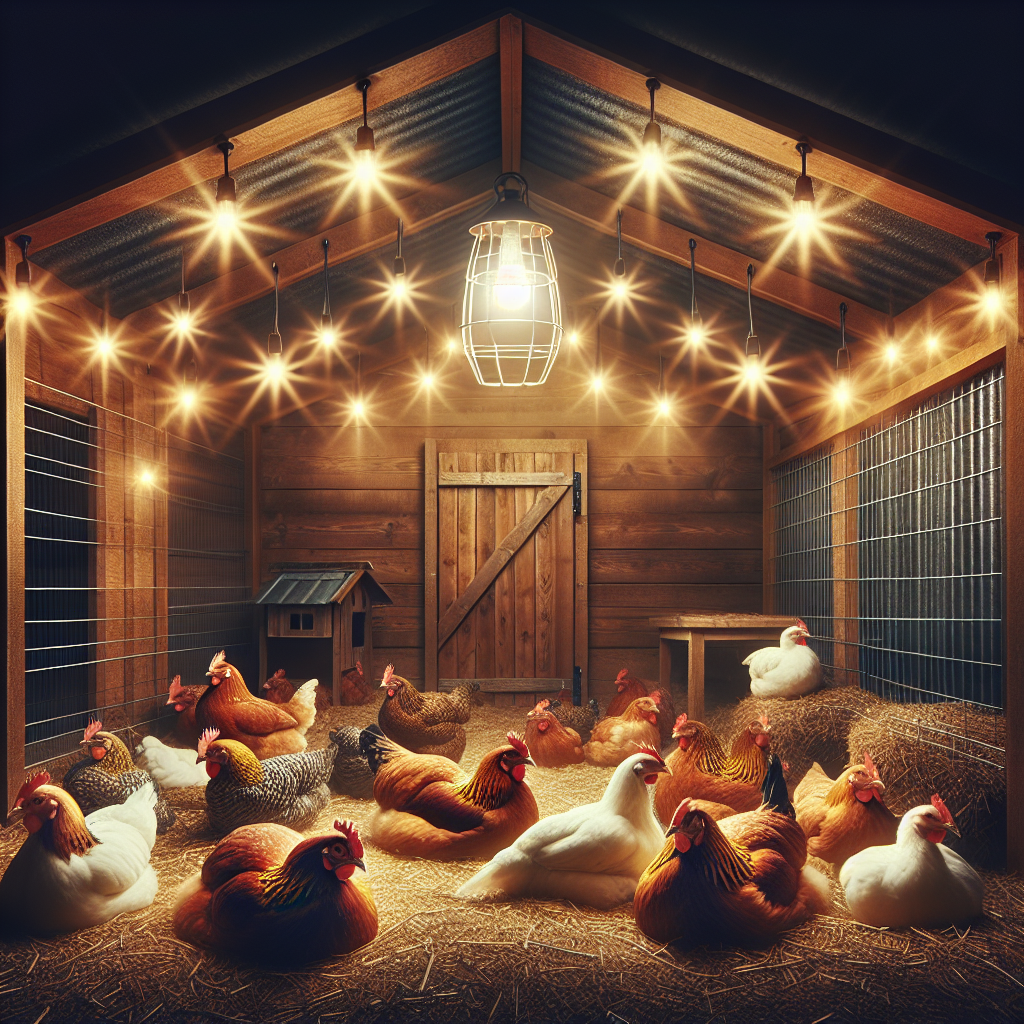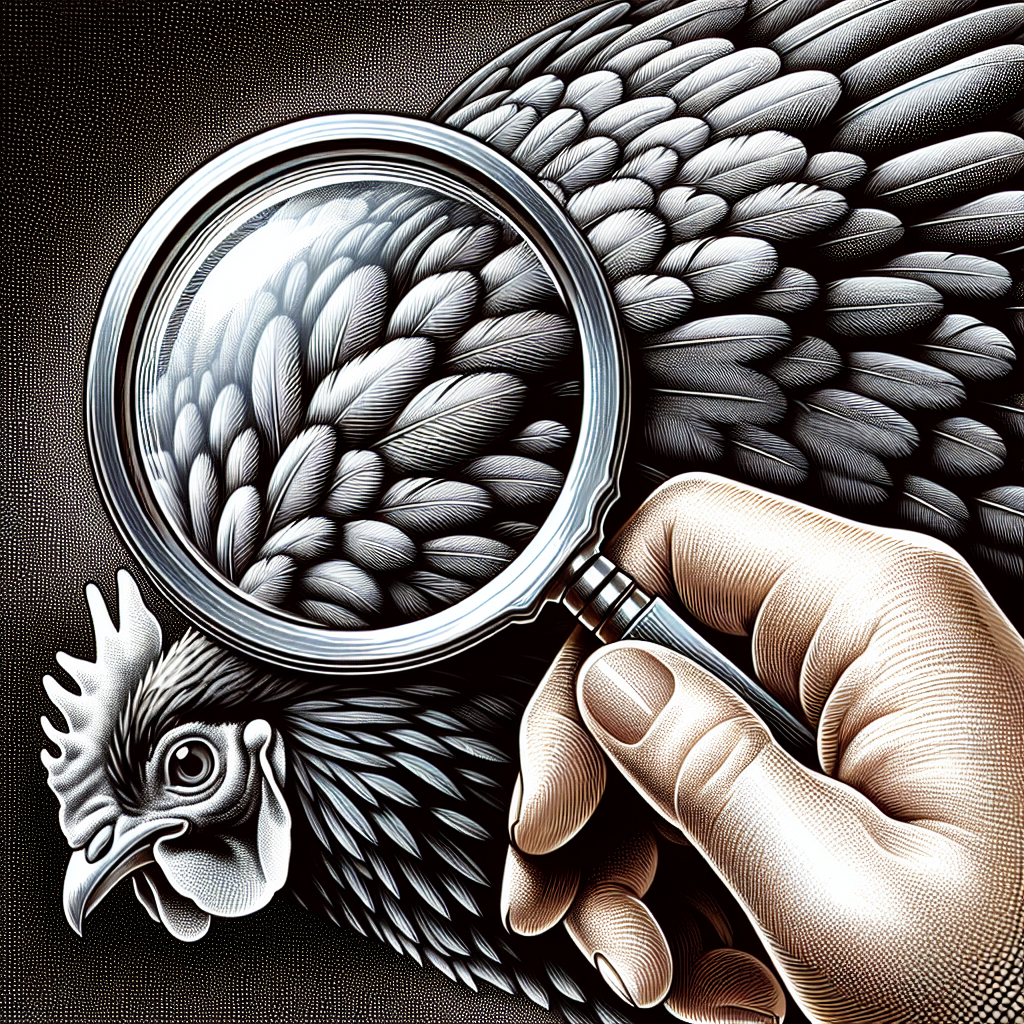Managing your flock of birds at night can be a challenge, but with the right techniques, it can become a seamless and efficient process. Whether you are a seasoned poultry farmer or a backyard enthusiast, ensuring the well-being and safety of your flock during the night is crucial. From proper lighting to predator prevention, this article explores the best techniques for nighttime flock management, providing you with practical tips and advice to keep your feathered friends happy and secure.
Choosing the right housing
Providing adequate space
When choosing housing for your flock, it is important to ensure that there is enough space for all the chickens to move around comfortably. Overcrowding can lead to stress and behavioral issues among the flock. A general rule of thumb is to provide at least 4 square feet of indoor space per chicken, and an additional 10 square feet of outdoor space in the run. This will allow your chickens to stretch their wings and engage in natural behaviors.
Insulating the coop
Insulating the coop is crucial for maintaining a comfortable temperature for your flock, especially during the cold winter months. Proper insulation will help regulate the temperature inside the coop, keeping it warm in winter and cool in summer. This can be achieved by using fiberglass insulation in the walls and ceiling, and sealing any gaps or cracks where cold air may seep in.
Ensuring proper ventilation
Good ventilation is essential for maintaining a healthy and comfortable environment for your chickens. It helps remove excess moisture and ammonia from the coop, which can lead to respiratory issues and other health problems. Ensure that there are enough windows or vents to allow for proper airflow, while also keeping predators out. Additionally, consider using breathable bedding materials that promote good air circulation.
Optimizing lighting conditions
Using timer-controlled lighting
Controlling the lighting in your coop can help regulate the laying patterns of your hens. Installing timer-controlled lighting allows you to mimic natural daylight cycles and encourage consistent egg production. Set the timers to provide around 14-16 hours of light per day during the laying season, and reduce the lighting to natural daylight hours during the molting season.
Installing dimmer switches
Dimmer switches provide a way to gradually reduce the light intensity in the coop before bedtime. This helps to simulate a natural sunset, signaling to the chickens that it’s time to roost for the night. By gradually dimming the lights, you can minimize stress and ensure a calm and peaceful transition to nocturnal rest.
Providing low-intensity night lights
Having low-intensity night lights in the coop can help provide a sense of security for your flock. Chickens have poor night vision, and sudden darkness can cause them to become disoriented and agitated. By installing low-intensity night lights, you create a more comfortable and stress-free environment for your chickens during the nighttime hours.
Feeding and water management
Implementing a feeding routine
Establishing a consistent feeding routine is important for managing your flock’s nighttime behavior. Plan to feed your chickens at the same time each day, preferably in the morning or early afternoon. Avoid late-evening feeding, as it can lead to an increased risk of night-time pests, such as rats or raccoons, being attracted to the coop.
Using automatic feeders and waterers
Investing in automatic feeders and waterers can significantly enhance your nighttime flock management. These devices can be programmed to dispense food or water at specific intervals, ensuring a constant supply for your flock even when you are not present. This not only saves you time and effort but also minimizes the disturbance to your chickens during the night.
Avoiding late-evening feeding
As mentioned earlier, it is best to avoid late-evening feeding to prevent attracting pests to the coop. Feeding your chickens earlier in the day allows them ample time to digest their food before nightfall. This helps to reduce the likelihood of nocturnal pests being drawn to the coop in search of food, thus ensuring the safety and well-being of your flock.
Predator prevention
Securing the coop and run
Ensuring the security of your coop and run is essential for protecting your flock from predators. Invest in sturdy and predator-proof materials, such as heavy-gauge wire mesh, to cover windows and vents. Close any gaps or cracks in the coop that may allow entry for small predators. Additionally, reinforce the perimeter of the run with buried wire or an apron to prevent digging predators from gaining access.
Installing motion-sensitive lighting
Motion-sensitive lighting can be a valuable tool in deterring nocturnal predators. By installing lights that are triggered by movement, you create a sudden burst of light that can startle and scare away potential threats. This added layer of security can help keep your flock safe during the night and provide peace of mind for you as the owner.
Using predator deterrents
There are various predator deterrents available on the market that can help protect your chickens from night-time attacks. These include motion-activated sprinklers, decoy predators, or even audio devices that emit distress calls of prey animals. Using such deterrents can create an environment where predators are discouraged from approaching the coop or run.
Monitoring flock health
Performing regular health checks
Monitoring the health of your flock is vital for early detection and prevention of any potential issues. Conduct thorough health checks regularly, including inspecting their feathers, beaks, and feet. Look out for signs of parasites, such as mites or lice, and check for any abnormalities in their behavior or appearance. By identifying and addressing health concerns promptly, you can ensure the overall well-being of your flock.
Preventing parasites and diseases
Implement a proactive approach to parasite and disease prevention to safeguard your flock’s health. Regularly clean and disinfect the coop, paying close attention to roosting areas and nest boxes. Provide dust baths to help chickens naturally control external parasites. Additionally, practice good biosecurity measures, such as limiting contact with other flocks and quarantining new birds, to minimize the risk of introducing diseases to your flock.
Administering nighttime vitamins or supplements
Administering nighttime vitamins or supplements can be beneficial for your flock’s health, especially during certain seasons or periods of stress. Consult with a poultry veterinarian to determine if there are any specific vitamins or supplements that could be beneficial for your flock’s well-being. Administering these supplements during the night ensures optimal absorption and utilization by the chickens.
Ensuring flock safety
Checking for potential hazards
Regularly inspect the coop and run for any potential hazards that may pose a risk to your flock’s safety. Remove any sharp objects, toxic plants, or loose wires that could cause injury. Ensure that there are no loose or unstable structures that could collapse and harm your chickens. By being proactive in identifying and addressing potential hazards, you can create a safer environment for your flock.
Keeping the coop clean and dry
Maintaining a clean and dry coop is essential for the overall health and well-being of your flock. Regularly remove waste and bedding material, and replace it with fresh, dry material. This helps to prevent the buildup of moisture, which can lead to the growth of harmful bacteria and increase the risk of respiratory issues. A clean and dry coop also reduces the attraction of pests and parasites.
Implementing emergency protocols
Having well-defined emergency protocols in place is crucial for ensuring the safety of your flock during nighttime emergencies. Establish clear plans for dealing with power outages, predator attacks, natural disasters, or other unforeseen events. Include contact information for local veterinary services or fellow chicken keepers who can provide assistance if needed. Being prepared and having a plan in place can make all the difference in protecting your flock’s safety.
Managing flock behavior
Encouraging roosting behavior
Chickens are naturally inclined to roost, or perch, during the night. Provide ample roosting space and comfortable roosting bars in the coop to encourage this natural behavior. Ensure that the roosts are placed at an appropriate height and that each chicken has enough space to comfortably roost without feeling cramped or overcrowded. By promoting roosting behavior, you help create a sense of security and well-being among your flock.
Handling nighttime disturbances
Occasionally, chickens may become disturbed during the night by external factors such as loud noises or sudden lights. Minimize these disturbances by keeping the coop in a quiet area away from high-traffic zones. If needed, use blackout curtains or blinds to block out excessive light from nearby sources. Creating a calm and quiet environment during the night can help your chickens sleep more soundly.
Preventing aggression or bullying
Nighttime can sometimes intensify aggression or bullying among the flock. Ensure that there are enough resources, such as food, water, and nesting spots, to minimize competition and reduce aggression. Monitor flock dynamics closely and intervene if necessary to prevent excessive pecking or bullying behavior. Creating a peaceful and harmonious social environment within your flock contributes to their overall well-being.
Implementing security measures
Installing security cameras
Installing security cameras around your coop and run provides an extra layer of surveillance and protection. With the ability to monitor your flock remotely, you can quickly identify and respond to any threats or unusual behavior. The presence of security cameras can also act as a deterrent to potential predators, minimizing the risk of nighttime attacks.
Utilizing alarms and sensors
Alarms and sensors can alert you to any unauthorized entry or disturbance in your coop or run during the night. Motion sensors or pressure-sensitive pads can be placed strategically to detect any movement or tampering. When triggered, these alarms can emit loud noises or activate lights to scare off intruders and protect your flock.
Establishing neighborhood watch
Engaging with your neighbors and establishing a neighborhood watch system can be beneficial in ensuring the safety of your chickens. Informing your neighbors about your backyard flock and encouraging them to be vigilant can increase the chances of detecting and preventing nighttime threats. Neighbors can serve as an additional set of eyes and ears, reporting any suspicious activities or signs of predators.
Creating a comfortable environment
Using heat lamps or heaters
During colder months, providing supplemental heat is essential for keeping your flock warm and comfortable. Use heat lamps or heaters to maintain a consistent temperature inside the coop. Position them carefully to avoid any fire hazards or overcrowding around the heat source. Ensure that the coop is adequately insulated to retain the warmth generated by the heat lamps or heaters.
Providing appropriate bedding materials
Choosing the right bedding materials is crucial for creating a comfortable environment inside the coop. Straw, pine shavings, or hemp bedding provide comfortable and insulating surfaces for your chickens. Regularly clean and replace soiled bedding to maintain good hygiene and prevent the buildup of ammonia, which can be harmful to your flock’s respiratory health.
Blocking drafts and cold spots
Inspect the coop for any drafty areas or cold spots that may cause discomfort to your flock. Seal any gaps or cracks in the walls, windows, or doors to minimize heat loss and prevent drafts. Consider using draft stoppers or additional insulation in areas prone to cold air infiltration. Providing a cozy and draft-free environment ensures the well-being of your flock during the night.
Nighttime egg collection
Checking for nighttime laying habits
Some chickens may have a preference for laying eggs during the night. Get to know your flock’s habits and check for any nighttime egg-laying patterns. Regularly collect eggs both during the day and before bedtime to ensure their cleanliness and prevent egg eating by the chickens. This practice allows you to maintain the quality and freshness of the eggs laid during the night.
Installing roll-out nest boxes
Roll-out nest boxes can be a valuable addition to your coop for nighttime egg collection. These specially designed nest boxes have sloped floors that allow eggs to gently roll away from the chickens as soon as they are laid. This helps prevent accidental breakage or damage, as well as discourages the chickens from sitting on eggs and potentially breaking them.
Ensuring cleanliness of eggs
Maintaining clean eggs is essential for both safety and aesthetic reasons. Collect eggs frequently, particularly during the night, to ensure they are not left to accumulate and potentially become soiled. Inspect each egg for any dirt, debris, or cracks. Clean dirty eggs with a mild detergent or a specially formulated egg cleanser, if necessary, using a soft cloth or sponge. Properly cleaned and stored eggs can maximize their shelf life and maintain their quality.




